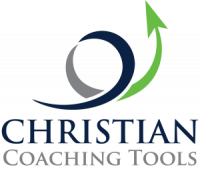If you have been following our blog, you’ve likely taken an interest in coaching. Perhaps you’re already a professional coach, thinking about taking on more clients. Or maybe you are weighing the idea of becoming a coach. No matter where you are on your journey, it’s important to assess your readiness to coach!
Today we’re discussing how to monitor readiness to become a coach. This is a part of self-assessment that is crucial to coaching – you need to know where you are on your journey before you can know where you should go.
Monitoring readiness is the ability to determine and monitor your emotional, spiritual, and physical readiness to become a coach (and consider seeking professional assessment.) Monitoring your own readiness to serve as a coach means being willing to take an unfettered look at yourself and where you are in life. Coaching is a large responsibility and requires a lot of time and energy, a lot of specific knowledge and a deep understanding of your personal strengths and weaknesses. Sometimes other areas of your life require more immediate attention, and the time may just not be right to take on coaching. That’s okay! There will be a season where the time will be right, and you’ll be in the right place in life to take it on. Knowing your own bandwidth will make you a better coach and a happier, healthier human.
There are a number of things to consider when monitoring your readiness to coach. Here are a few exercises we recommend:
- Read through the list below and pray. Ask for God’s direction regarding your readiness in each area:
- your emotional readiness
- your relational readiness
- your spiritual readiness
- your time management
- your energy readiness
- your physical health readiness
- your season of life readiness
- your coaching skills readiness
- your mental readiness
- Get a coach competencies assessment. This is the perfect time to discover a new coaching tool: the 360 degree online coach assessment. This is a consistent and dependable research-based assessment to provide an accurate picture of where you are as a coach. It is based on nine competencies and their behavioral expressions, created by Dr. Bob Logan, Dr. Chuck Ridley, and myself.
- After your self-assessment and professional assessment, work with a coach mentor to help guide you on your journey of ongoing growth and development as a coach.
If you are interested in a full explanation of how our team (namely Dr. Bob Logan & Dr. Chuck Ridley) arrived at the competencies of a Christian Coach – CLICK HERE. And check out our new resource for Christian Coaching – ChristianCoachingTools.com!

Identify areas that need your focused attention as a Disciple Coach

